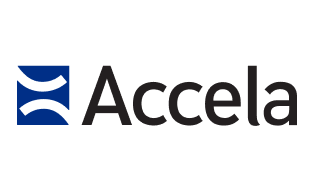Technology is integral to nearly every facet of society, and the need for more skilled IT professionals has become a pressing issue. This problem is particularly glaring within government agencies, which rely on advanced technologies to deliver services, ensure security, and drive innovation.
The need for more IT staff in government agencies hampers their ability to function efficiently and poses significant risks to public trust.
The Scope of the Problem
Government agencies at all levels—including city, county, and state—struggle to attract and retain IT talent. Several factors contribute to this issue, including an aging workforce, the rapid pace of technological change, and intense competition from the private sector. According to a 2022 report by the National Association of State Chief Information Officers (NASCIO), nearly 90% of state CIOs cited staff shortages as a significant concern, with cybersecurity, application development, and data analytics being the areas most affected.
So, what is contributing to this shortage?
1. Aging Workforce
One significant factor contributing to the IT staff shortage in government agencies is the aging workforce. Many of the IT workforce is nearing retirement age, and younger professionals need to fill these roles. This demographic shift is particularly pronounced in government agencies, where the average age of employees tends to be higher than in the private sector.
2. Rapid Technological Change
The rapid pace of technological change is another critical factor. Technologies such as artificial intelligence, cloud computing, and cybersecurity are evolving so quickly that the skills required to manage them constantly change. Government agencies often need help to keep up with these changes due to bureaucratic constraints, budget limitations, and lengthy hiring processes.
3. Competition from the Private Sector
Government agencies face stiff competition from the private sector in attracting top IT talent. Private companies often offer higher salaries, more flexible working conditions, and more significant opportunities for career advancement.
Impacts on Government Agencies
The shortage of IT staff in government agencies has far-reaching implications, affecting everything from service delivery to workplace productivity. Here are some of the critical impacts:
1. Delayed or Inadequate Service Delivery
One of the most immediate impacts of IT staff shortages is the delay in service delivery. Government agencies rely heavily on technology to provide essential services to the public, such as processing benefits, issuing licenses, and managing public records. When IT positions go unfilled, these services can be delayed or interrupted, causing frustration among citizens and eroding public trust.
2. Increased Security Risks
Cybersecurity is one of the most critical areas affected by IT staff shortages. Government agencies are prime targets for cyberattacks due to the sensitive information they handle. Without sufficient IT staff to monitor and protect their systems, these agencies are more vulnerable to breaches, which can have devastating consequences. A 2021 report by the Center for Strategic and International Studies (CSIS) found that cyber incidents involving government agencies increased by 150% over the past five years, highlighting the urgent need for skilled cybersecurity professionals and partners.
Accela’s Security Solution Overview
3. Inability to Innovate
Innovation is key to improving government services and keeping pace with the public’s needs. However, the shortage of IT staff makes it difficult for government agencies to implement new technologies and processes. This can lead to inefficiencies and missed opportunities for improvement. For example, during the COVID-19 pandemic, many government agencies struggled to transition to remote work and online service delivery due to a lack of IT resources.
Government agencies need to adopt strategies to address IT staff shortages. How can your agency address the IT staff shortage head-on?
Adopt a Platform Approach to Government Technology
Modern IT solutions like Accela can empower government agencies to meet these rising expectations and transform how you deliver services to your community.
Accela’s unified platform approach allows government IT departments to provide a number of services to multiple departments on one single platform. By pivoting away from disconnect, legacy systems, IT departments are able to simplify operations and do more with less. freeing up time to work on other essential tasks. Agency staff can accomplish more without needing to search for additional personnel. Communities gain new insights, improve data connections, find efficiencies, and deliver a digital experience while making services more accessible to residents.
In addition, agencies can utilize Accela’s Management Application Services to supplement IT staff and extend bandwidth. This frees agency leaders to focus on transformative initiatives instead of manual administrative duties.
By finding alternate ways to increase staff capacity, your agency can achieve the people power needed to propel your community forward.
Contact us today to learn more about ready-to-deploy Civic Applications unified on a single, scalable, and extensible platform.




